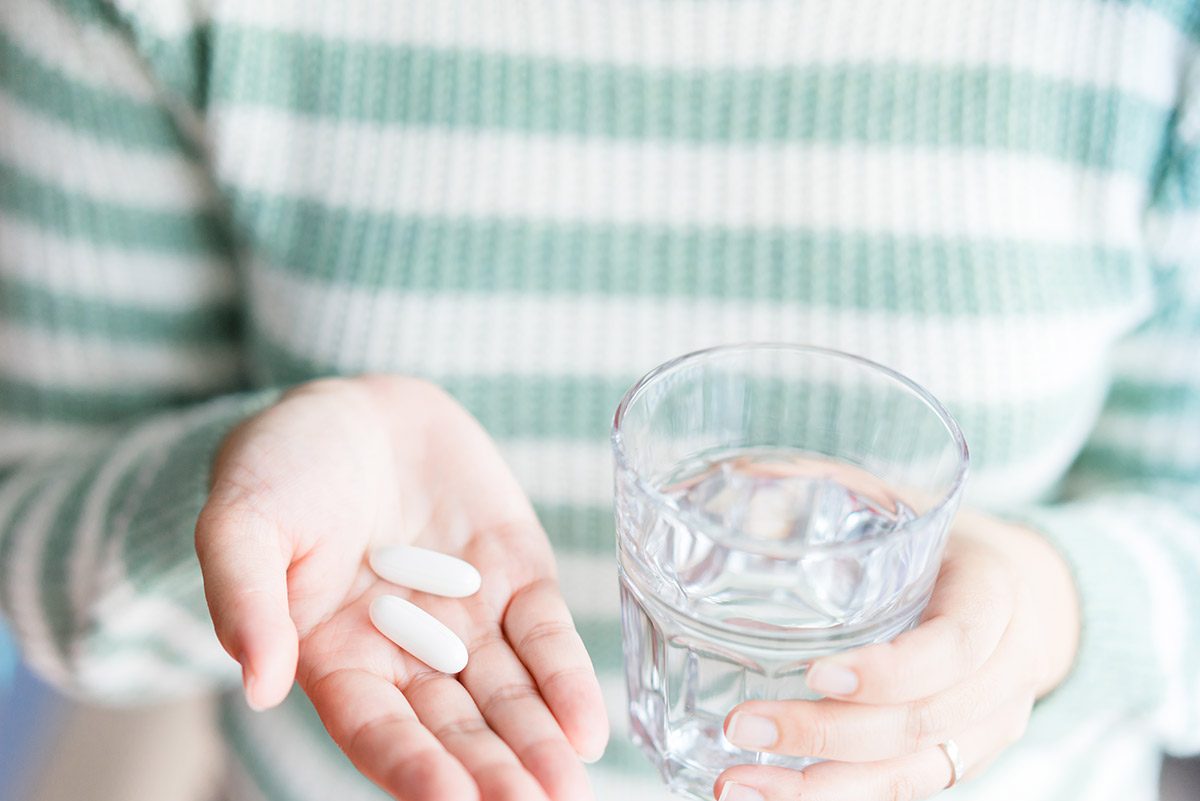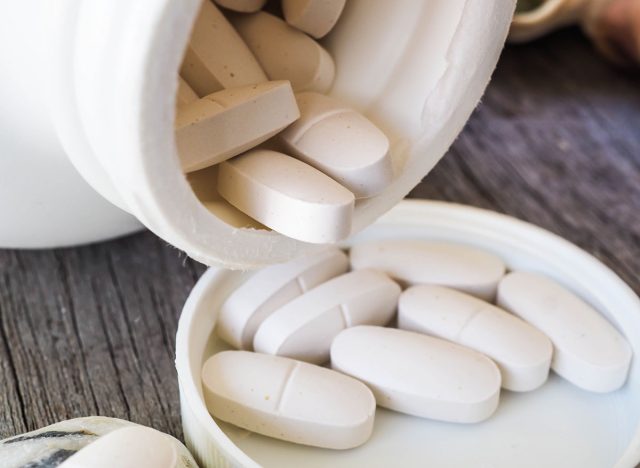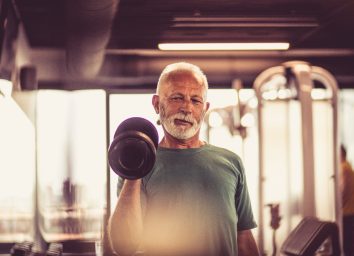The #1 Best Supplement for Osteoporosis, Says Dietitian

Our bones do a lot more to support our bodies than simply provide structure. They’re responsible for protecting vital organs, as well as storing calcium and other minerals, according to the Cleveland Clinic. Your bones are made up of tissue, and they’re constantly in a cycle of teardown and repair. The balance of this system is both delicate and precarious for those with osteoporosis.
Osteoporosis is a degenerative disease where bone loss occurs faster than bone renewal, which causes weakening bones and increases risk of serious fractures. Affecting 54 million people in the U.S. and leading to about two million fractures annually, osteoporosis symptoms include back pain, loss of height, stooped posture, and bones that break easily.
When you hear about osteoporosis, you probably think it only affects the aging population. Although this is usually the case, younger people can be diagnosed with this condition for a variety of reasons, such as hormone imbalances, gastrointestinal issues, sedentary lifestyle, excessive smoking or drinking, or nutritional deficiencies. And if you’re female, of white or Asian descent, have a small frame, or have a family history of osteoporosis, you could be at higher risk of having low bone density.
While there are medications that can help slow bone loss, healthy lifestyle practices, such as exercise and nutrition, can also mitigate and manage the symptoms of this disease. Eat This, Not That! Medical Expert Board member Amy Shapiro, MS, RD, CDN, of Real Nutrition NYC and member of our medical expert board offers a few suggestions, including one critical nutrient for building bone strength.
“Making sure [you] are staying active, eating a balanced diet including foods rich in calcium, and following doctors recommendations on medication may help prevent further bone degeneration.”
Shapiro advises taking a supplement of calcium, alongside magnesium and vitamin D.
The best supplement for osteoporosis contains bone-supporting micronutrients calcium, magnesium, and vitamin D.

According to Medical News Today, calcium is a necessary component for bone growth and development, while vitamin D helps with calcium absorption and regulation. Magnesium deficiencies are associated with higher rates of developing osteoporosis, so it’s believed that increasing magnesium levels can help with lowering your risk.
It’s important to try to get as much of your daily calcium intake from your diet as possible, as too much calcium from supplementation can lead to hypercalcemia, which causes kidney stones or brain or heart irregularities. The recommended dose is 1,000 milligrams for women under 50 and men. Women who are 51 or older should get 1,200 milligrams of calcium per day. You should still consult your doctor to make sure your calcium intake is sufficient, but not excessive.
Takeaway
While a supplement can help slow or prevent osteoporosis, it’s important to continue to eat a well-balanced diet to protect your bones and support overall health, says Shapiro.
“We get calcium from many sources, so eat the rainbow; eat vegetables, beans, lean protein, and dairy products,” says Shapiro.
“Stay active as walking and weight training help to support bone health. If you are to limit anything, I would recommend limiting added sugars, processed foods, and too much sodium, which can cause bones to leach calcium.”









